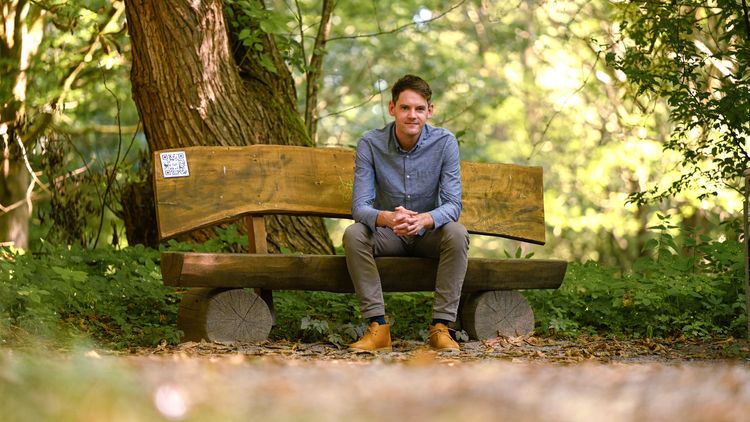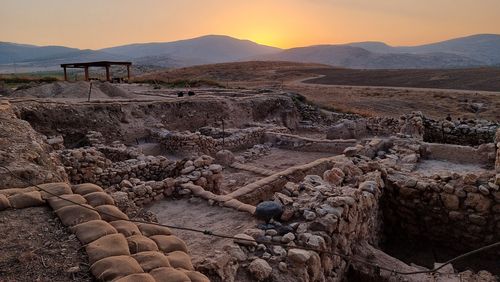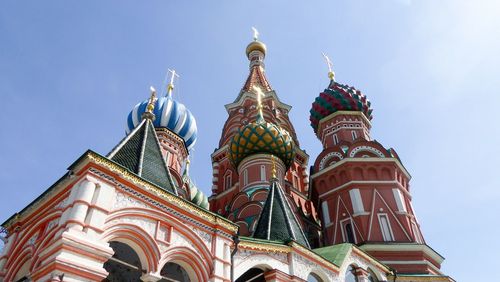What role does Christianity play in perpetuating racism? Theologian Dominik Gautier takes a critical look at the Christian faith and examines this and other pressing questions of our time, such as the relationship between humans and nature, from a theological perspective. In the following interview he talks about his research.
Mr Gautier, you are investigating racism and the American civil rights movement from a theological perspective. Why?
When I was a student I studied the US civil rights movement and key figures like Martin Luther King, and asked myself: What does theology actually say about racism? According to the Christian faith, all people are equal before God. This means that theology should have positioned itself against racism. But it didn’t. On the contrary, in my view it is entangled in the perpetuation of racist ideas, and there are very few theological discussions on the subject.
That basically stands in contradic-tion to theology’s mandate to become far more critical?
Yes. This is why in the 1960s James H. Cone, the Black theologian and founder of Black theology in the US – which emerged from the Civil Rights movement and Black Power – criticized academic theology, which was mainly practised by whites. Cone maintained that theology makes itself complicit in racism by remaining silent on the issue. He pointed out that if a person who was killed by state violence, namely Jesus, is at the very centre of Christianity, then theology must find its voice for criticizing state violence – including police violence, for example. This also means that if Christianity takes itself seriously it must prove its sincerity by being crit-ical of racism. My dissertation was therefore about developing a self-crit-ical theology.
What exactly was your focus?
I analysed how the German-American theologian Reinhold Niebuhr dealt with racism and the civil rights movement in the 1950s and 1960s. Unlike many other whitetheologians, Niebuhr maintained that churches must come to see action against racism as one of the key tasks. However, as I demonstrated in my dissertation, he himself didn’t always adhere to this, and he also downplayed racism. Niebuhr supported the cause of the civil rights movement. But he also said that those involved were too impatient in their push for change. He believed the movement should have adopted a more long-term perspective. This, of course, is problematic, because with his "not yet, later" attitude he reinforced a social problem – and he also did so by citing God.
So it was more about consolation …
Yes. For me, as a white person, it was also important to study another white person and learn from their mistakes. Christianity is entangled in the notion of white supremacy. We need to confront that – through nuanced research. In systematic theology we are concerned with explaining the Christian faith in the present day for the present day, and, in doing so, we also criticize the Christian faith, as well as showing that it has something to offer. The aim is not to proselytize, but to reflect and develop a different awareness of the problems of our time from a religious perspective.
You are currently involved in an interdisciplinary research network funded by the German Research Foundation. What is the focus there?
In this network German and US researchers from the fields of American studies, history and theology have come together to study the civil rights movement from a transatlantic perspective. One of the objectives is to examine how the legacy of the civil rights movement continues to have an impact and develop in the US and Germany today. The network started its work at the beginning of 2022.
Within this context my interest is in the connection between racism, the environment and justice – from a theological perspective. The environmental justice movement emerged from the US Civil Rights movement in the 1980s – supported by the United Church of Christ. In 1987, this Reformed church published a ground-breaking, high-profile report showing that toxic waste was often dumped in places where mainly African Americans and people with Latin American ancestry lived. The report concluded that the consequences of the destruction of nature mainly impact People of Colour. In the future, I would like to address the question of how to develop a theology that is in dialogue with this movement – and that takes seriously the principle that Christianity should be about justice for people affected by discrimination and justice for more-than-human nature.
You also research the relationship between humans and nature and examine the notion that Christianity is implicated in the destruction of nature.
Yes, the sociologist Max Weber developed this idea implicitly at the beginning of the 20th century: he argued that the Reformed tradition of Calvinism, in particular, has promoted capitalism and thus – by extension – caused the destruction of Earth. In my view, however, this thesis requires a highly nuanced approach. After all, John Calvin, whose doctrine the Reformed tradition follows, also emphasized the strong connection between God and nature. So rather than elevating humans above nature, the Christian faith must emphasize solidarity with nature. I am interested in how these sixteenth-century ideas were interpreted in fields such as landscape art and nature writing. Authors like Henry David Thoreau, known for his descriptions of nature and calls to protest against racism, are as much part of the Reformed tradition as John Muir, who founded the National Park movement in the US.
So in this respect, the ideas of Re-formed theology have contributed to environmental protection.
We have the national parks thanks to the conservation policy that emerged in the US in the nineteenth century. At the same time, the conservation of forests, of wilderness, was often linked to the eugenics movement, or preservation of the "white race". Muir himself disparaged indigenous people while exalting nature. The concept of nature was also glorified in National Socialist ideology, for example. We see this clearly in its narratives about the "German forest" and "blood and soil". The entanglement of nature conservation policies and nationalist, antisemitic thinking becomes apparent here. I believe that a theological discussion of nature must firmly reject such ideologies.
Would this lead to a less emotional way of looking at nature?
From the Reformed theology perspective, nature is not an ethical guideline, nor "home" nor "Mother Earth", but first and foremost God’s creation which, together with all humanity, is dependent on God. We can admire it in all its beauty. But we must also clearly name the dark sides of nature, for example the emergence of life-threatening viruses. What I aim for is a sober and complex approach to nature that is rooted in solidarity. This is why in my research, I address the relationship between humans and nature, bringing the Reformed tradition into dialogue with cultural studies. Surprisingly, we see that both disciplines deal with similar topics.
Could you give an example?
Both explore this exaltation of nature – but from different perspectives. For example, US law and cultural studies scholar Jedediah Purdy critically examines US environmental policy and the ideologization of nature in his book “After Nature. A Politics for the Anthropocene”. He argues that in the Anthropocene – the age of humans as the dominant influence on the planet’s climate and ecosystems – we must no longer make nature a screen for our own projections but take it seriously in all its complexity, something towards which Reformed theology also strives. This is where I believe Christian theology and cultural studies discourse on the Anthropocene intersect.
So your goal is to prompt a kind of religiously informed reflection on humanity and nature ...
If I were talking to an environmental activist, we would probably agree that it is important to work towards environmental justice and to contain the climate crisis. But in my view, we should not conceive environmental protection merely as a technological problem that can only be solved politically – although that is of course crucial. We also need a spiritual approach: I believe that we can see Christianity as a resource for increasing our sensitivity to the world and as a way to shift the focus a little away from ourselves – combined with a commitment to making life better for all living beings.
Does your faith play a role in your scientific work?
Yes, I believe that faith can also be expressed by questioning one’s own beliefs or traditional beliefs. On the other hand, traditional beliefs can also be surprisingly modern and relevant, and I can see them as a resource for ecological reflection, for example. For me, the two things go together – faith and academic reflection.
Interview: Constanze Böttcher
This story has first been published in the 2022/23 issue of the research magazine EINBLICKE.






